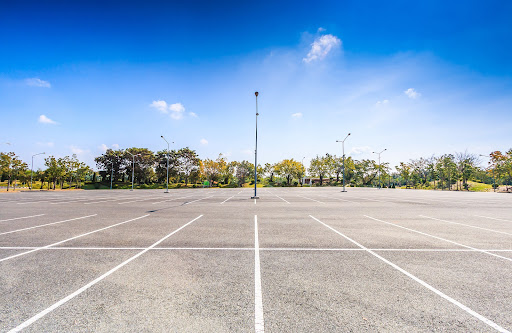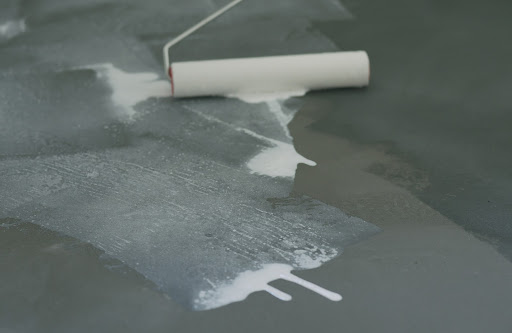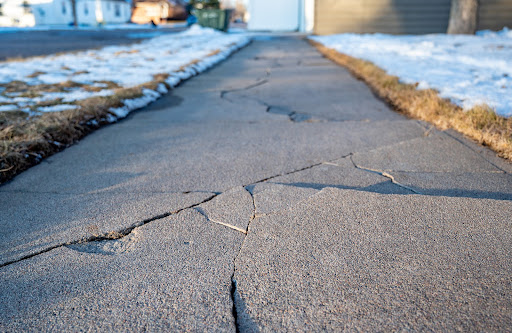
Concrete is sturdy, but that does not mean it requires no maintenance. So how can you maintain concrete the way professionals do?
Concrete is everywhere. It is used in construction, roadways, parking lots, and driveways – the possibilities are endless. Contractors and property owners alike favor concrete because it is durable and low-maintenance. But, low maintenance does not equal zero maintenance.
Strong as it may be, concrete is still vulnerable to deterioration, especially under certain circumstances. But, while it may seem easy, maintaining concrete does come with some work. And not many property owners know the first thing about proper maintenance when it comes to concrete surfaces.
Whether you are searching for how to maintain stamped concrete or just any concrete in general, here is how professionals do it.
Regular inspections are the key to identifying issues – and, therefore, remedying them – before they arise. As the saying goes, prevention is better than cure. But you can’t prevent anything if you don’t even know there is a problem.
Through regular and thorough inspections, you can pinpoint damages, such as cracks, while they are still minor and manageable. You might think it is okay to ignore them for now. After all, they are pretty insignificant. Visitors will not even be able to see the cracks from far away. But that kind of mindset is exactly what will lead to more expensive and large-scale damages.
Make it a part of your routine maintenance to inspect concrete surfaces. By scheduling the inspection, there is little to no risk of neglect.
One of the primary rules for maintaining concrete is keeping it clean. Cleanliness is an absolute must when it comes to prolonging the lifespan of concrete surfaces. It does not even have to be that complicated. Simply removing dirt, dust, and debris is a good place to start.
Of course, every now and then, you might want to invest in a deep cleaning service. Hire a professional to pressure wash your concrete surfaces to restore their good-as-new appearance.

A good chunk of the population underestimates the power of a sealant. Concrete, while durable, is still susceptible to the elements. Minimize the risk of damage by sealing your concrete. A sealer or sealant can protect the concrete from water, grime, and general dirt. It prevents these pollutants from penetrating the concrete and eroding the sub-base, not to mention providing added protection from abrasions.
When it comes to concrete maintenance and repair, your response rate can make a world of difference. Stains and spills should be removed as quickly as possible. Do not let them stay on the concrete for a long time. Otherwise, they might seep into the ground or discolor the surface permanently. Act fast, even if the concrete is sealed.
When you encounter cracks in the concrete, you might feel tempted to disregard them. This is something that many property owners have in common. If the damage is not serious, why pour time and money into it?
This is a dangerous way of thinking. If you don’t address the problem immediately, it can worsen. Sometimes, it worsens overnight, resulting in more substantial damage and more expensive repairs. Thus, concrete repair should be done straight away.
If you really want to maintain concrete like a pro, you need the right cleaning products. Water and soap are generally the go-to solutions for amateurs, and they work great in a bind. But, some specialized cleaning products are specifically designed for concrete surfaces.
These cleaning products effectively remove dirt, grime, and stains without damaging the concrete. Professionals don’t only have the knowledge to use these products but also have access to them. In contrast, you might use the wrong chemicals and do more harm than good.
Concrete is a durable material, but it is not totally indestructible. Everything has a breaking point. If you have a warehouse with concrete floors, it pays to know how much weight they can take without collapsing. Concrete is even more prone to breakage if the sub-base beneath the surface is already in bad form.
To be safe and avoid concrete damage, it is imperative not to overload the surface. Even not-so-heavy weight, when applied constantly, can compromise the integrity of the concrete. This extends to commercial and residential properties, though the latter tend to be made of weaker concrete.

The common misconception is that concrete does not require much attention because it is designed to withstand even the worst conditions. And although it is true that concrete is durable, it is not without its flaws. Concrete still needs proper care and maintenance.
But what happens when you fail to maintain concrete?
First and foremost, it deteriorates. Small cracks can quickly become gaping holes if you allow concrete to remain without care. Concrete slabs can start sinking, and it will not take long before the surrounding areas suffer the same fate.
Potholes will become a recurring issue. And, if there is anything universally true about potholes, it is that they pose a danger to people and vehicles. Potholes also negatively impact curb appeal and can drag down property values. As a property owner, this is far from the outcome you want.
Long-term deterioration can make the concrete surface unusable. Repairs will no longer be enough to restore the concrete, so your only option is to go for a full replacement. This is not only more costly but also more time-consuming. Your commercial property will surely take a hit.
Thus, it is clear that maintenance is a must, even when it comes to concrete. While you can do this on your own or with an in-house crew, hiring professional services is infinitely more beneficial.
There is a growing market for DIY projects and maintenance in property ownership. And, although it may seem easy, concrete maintenance is something you should leave to the pros. Doing so can save time and money while achieving quality results.
RELATED ARTICLES: